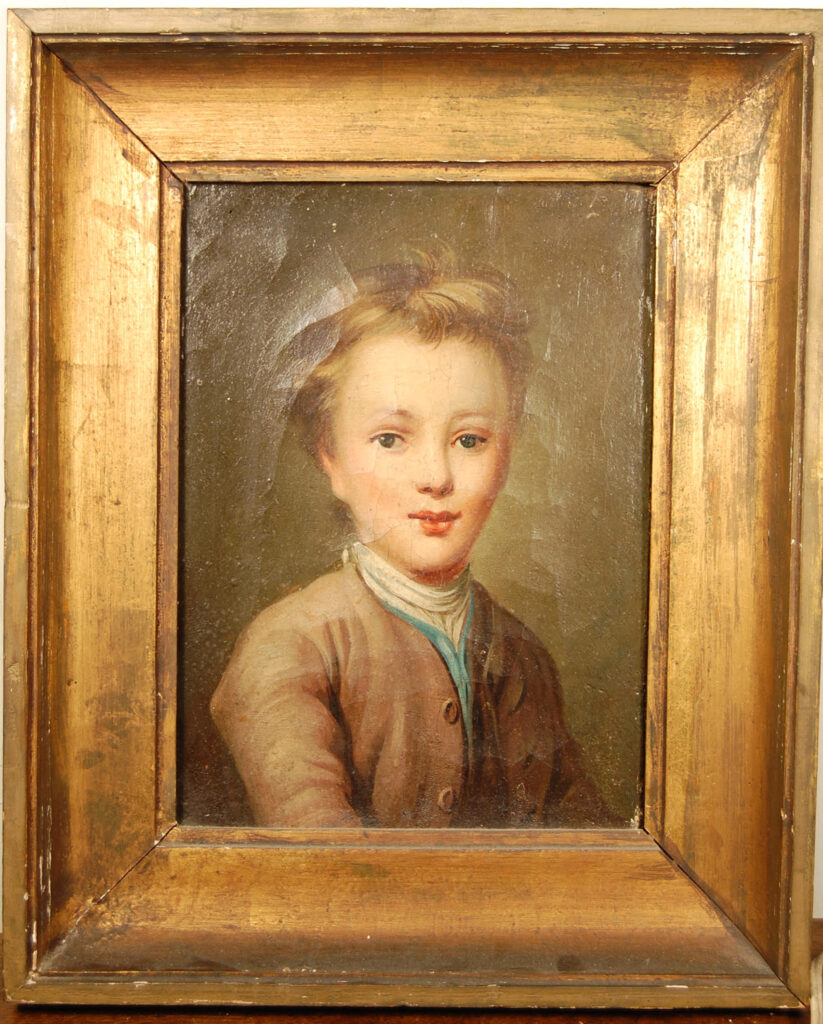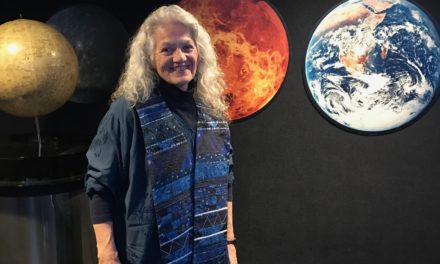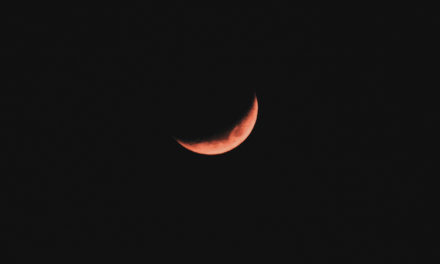It was the early fifties, and he was spending the summer, as usual, at Round Pond, Maine. The waters of Muscongus Bay were icy cold, and he screamed with delight. Afterwards, his mother would bundle him up in a long white towel and pummel him back to life. In these same frigid waters dwelt prehistoric lobsters, and local fishermen in their small boats would chug by and offer them up for a dollar a piece. His stepdad would carry them through the woods back to the house and put a huge pot on the stove to boil. When the lobsters were thrown in, they made terrible screeching sounds as they briefly clawed, desperate, at the blackened iron pot. Michael hated the agony, but gingerly joined in the feast and eventually even learned how to break open the bright red shell with a nutcracker. Though he hated death, ruefully he loved how lobster almost melted in his mouth. He loved the salty tang, the smoothness of the flesh. Yet for the rest of his life, though he loved dining at the various outdoor lobster joints dotting the coast from New Harbor to Christmas Cove, he would never be able to buy lobsters himself and throw them into a boiling pot of water back home, He would remain a coward and a hypocrite to the end. The paradox troubled him, but not enough to convince him to forego the pleasure. He hoped God was not a giant lobster.
There was an auction every Saturday morning and Michael would tag along and watch his parents bid. Though he was only twelve at the time, the auctioneer, tipped by his stepdad, would accept bids from the little summer visitor from the big city. Most of the time, he just watched, but one morning he found something he liked and timidly raised his hand. Only one other guy was bidding and, before he knew it, he was the owner of a well-used Bobby Thompson outfielder’s mitt. He wore it the rest of the auction and, later in the day, when they went shopping, his mom helped him find a tin of neatsfoot oil at the general store. “Here you go, Pumpkin,” she said. Back home he rubbed the heavy oil all over the glove, then took his baseball and placed it snugly in the pocket. He took a length of heavy rope and tied it tightly around the glove. In a few days, he would have a fine-grained, rejuvenated Bobby Thompson glove, redolent with old sweat and dark with the mysterious odor of impregnated time. It would be the envy of the schoolyard back home.
A few weeks later, they were back at the Saturday auction once again. Picking his way through the items scattered across the lawn, he came upon a painting of a little boy, smaller and younger than himself. The boy seemed to be wearing a velvet jacket and had white lace at his throat. It was an old painting and he felt touched by the boy, as if he had discovered a younger brother. His mother noticed him lingering around the portrait, so when it came up for sale she bid and bid again and for $5.00 it was theirs. It remained in their living room back in Queens as long as the old apartment was theirs.
Forty years later, his stepfather died. Ten years after that, his mother followed suit. Aujourd’hui, maman est morte. He was growing old himself by then, but he couldn’t bear his mother’s disappearance. For a year or so, the phone would ring in the middle of the night, and he would hear nothing but silence at the end of the line. Apparently, she could dial from beyond, but couldn’t speak. Perhaps there was nothing she could say that would make sense back here. After a while the calls stopped. He didn’t know if he was relieved or disappointed. Or just lonely.
Many years later, deep into retirement, approaching eighty, he stretched out each night in his familiar bed, in his quiet country house in the northern tier, with the tannic-laden Saranac flowing by just beyond his windows. Every night he would stretch out with a sigh beneath the familiar gaze of the little boy in the painting from the auction in Maine. The boy sat very erect and stared out of the frame with a certain boldness, a certain self-assurance. Yet his shoulders were tiny and he could not have been much over nine years old. What ever happened to that little boy, that upright little aristocrat back in his tumultuous 18th century. Was he swept away by the French Revolution? No one seems to know if the blood-thirsty revolutionaries included little children on their lists for the guillotine. Michael, staring up at the dignified little creature every night, somehow was convinced that his guardian had never grown to adulthood, had not survived the blood bath accompanying the establishment of liberty. He would stare up at him in silence, and it always seemed that the diminutive creature was placidly staring right back. They were close, like brothers, but the slender, delicate frame of this companion somehow made him feel guilty, as if, perhaps, he had let him down in the past, failed to protect him, or simply had not lived a noble enough life. He felt uneasy, suspecting the little boy was right. Finally, he would turn off the light and say goodnight in the dark.

He sometimes wondered what the boy’s fate would be after his own death. Should the painting go with everything else to his son on the West Coast, a son who might be touched or might simply consign him to auction and pass him along to a Bay Area stranger. Or should he bestir himself now, have the portrait appraised, find out who the painter was, and see if some small museum might be grateful to receive him into their modest collection. He feared that somehow he had failed the little boy in the past and that perhaps he was on the verge of failing him again in the fast approaching future. And so he would muse and ponder, turn over under his heavy blankets (it seemed there were never enough for his now weary blood,) bunch his pillows beneath his head, and finally drift off into oblivion. Despite the nightly communion with his guardian talisman, Michael never dreamed of him. In fact, he no longer even dreamed of his departed mother, only occasionally finding himself returning to the apartment in New York, searching desperately for her and finding nothing but a thick layer of dust and the stillness of long absence.
When in this last stage he would occasionally try to pray, the habit seemed to be gone and all he could manage was a small cry into the dark above his bed: “Hi, Mom.” It was as if his tiny dead mother were hovering there between him and the enormity of God. As if she needed him more than God did. Or was it he who needed her? “Hi, Mom,” he would call out into the dark, then roll over beneath the now invisible 18th century portrait of a doomed child and sink into uneasy sleep.
And then there came a night of resolution. His affairs, such as they were, had been in order for some time. He had left things in the hands of competent professionals and felt secure, even relaxed, about all three of them: the lawyer, the accountant, the financial adviser. He had never had the little boy appraised and he assumed he would simply go with all the other paintings to his son, living his own life on the far edge of the American continent. He hoped his son would be touched by this unsullied creature from the past. He hoped he would keep him.
As he lay there waiting to fall asleep, he thought he heard a clock ticking. But, of course, his little black digital alarm clock didn’t ever make a sound. The ticking seemed insistent, as if it had something to say. He felt an unusual hollowness in his chest, not pain really, just a strange sense of emptiness within. Then, in the dark of the night, as he stared into nothing, imagining, as he always did, that somehow his mother was hovering somewhere in that obscurity, he saw a soft glow at the far end of his bed. The glow grew in strength and finally he could see, even without his glasses, that the little boy he had known since childhood, that figure of clarity and rightness, who had gazed down at him nightly with comprehensive eyes that had always made him feel rueful and somehow inadequate, was now floating in the air, just above his feet under their mound of blankets. The little boy had silently slipped free of his silver frame, had drifted like smoke or a morning mist from the canvas in which he had dwelt for centuries, and hung now in the air above the foot of his bed, almost smiling.
Reaching out a tiny white hand, the boy, gazing at him as he always did, moved his red lips and spoke for the first time. “Viens,” he said. “Viens ici, come, viens alors, mon ami, mon frère, mon vieux, viens, viens ici,” and, somewhere in the background he heard or seemed to hear another voice, an even softer voice, saying, “There you are Pumpkin, come on in,” and that was all he heard, but it was enough.








Dear Alexis: Thank you for a tale well-told. I’m carrying it in my heart today.
COVID blessed us. Beautiful!
I love the rhythm of the work – gently unfolding mysteries coalesce in an uplifting finale. A beautiful journey in words & images. Thanks for sharing.